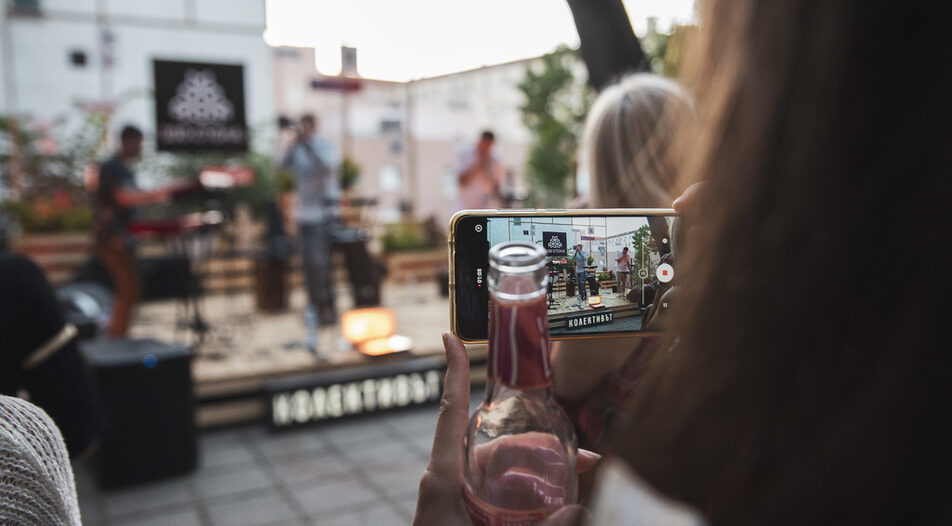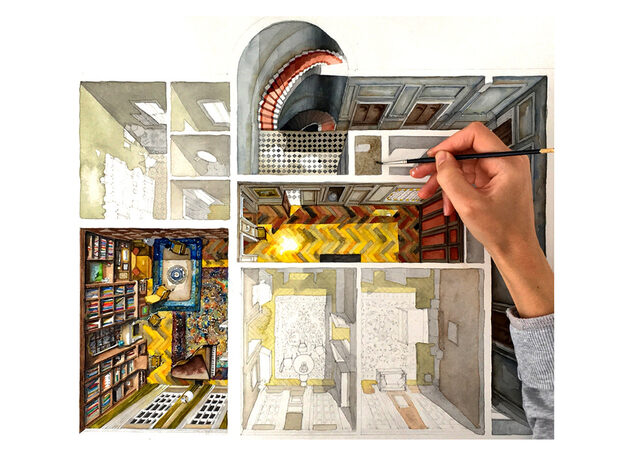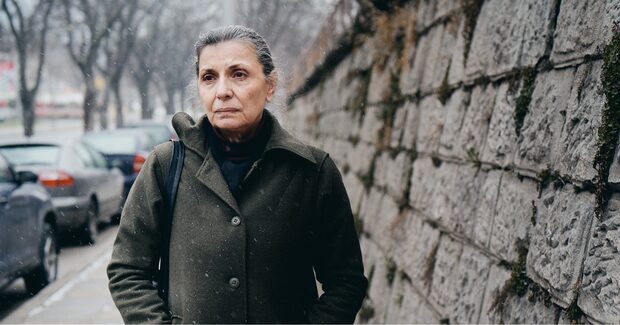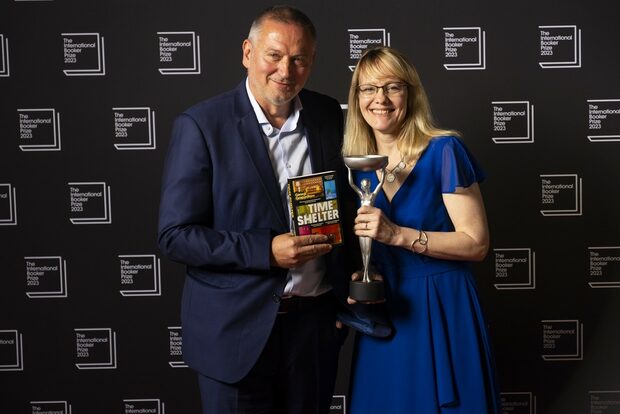The stairs between Moskovska and Budapest Streets just around the corner from the British embassy and the Arena di Serdica hotel have always held a special charm, away from the noise and bustle on the nearby boulevards. Starting this month, the long-abandoned courtyard of the Bulgarian Academy of Sciences (BAS) building on 1 Budapest Street has been transformed into the 100 Chairs space, an open-air stage for free concerts and parties, with a pop-up bar, art installations, designer furniture and street art.
The Collective Foundation, which has organized several editions of their Rivers of the City initiative, has a major role in transforming the courtyard and aims to establish it as a location that will have a more lasting impact on urban life.
Resurrecting forgotten urban spaces
"We show how a forgotten backyard can be turned into a center of attraction for hundreds of people in no time. They can enjoy greenery, shade and a pleasant view in the very heart of Sofia, and attend free events in the evening," says Annie Kodzhabasheva from the Collective team, who is convinced that even small interventions with a limited budget can provoke big and significant changes. "For most people, sketches and plans don't have that much value if you don't get a live feel for what we're talking about. Change in our shared spaces is not something that necessarily takes years to happen," she adds.
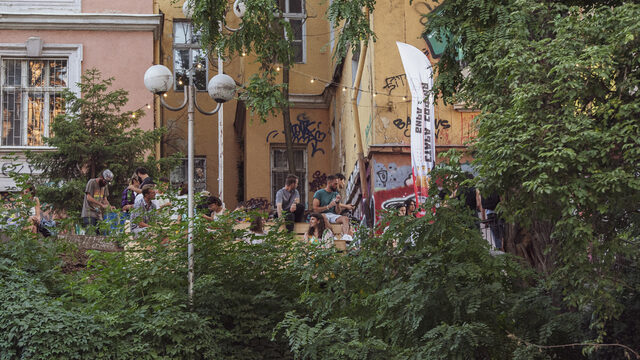
The name of the places comes from the many abandoned stools the Collective found in the BAS building, but also from the idea that with a few new opportunities for privacy and shared time, the way a place feels could be radically different.
According to Kodzhabasheva, the hill reveals the potential of many similar green and accessible public spaces in Sofia. She gives the northern part of the Oborishte area as a good example: the team has identified dozens of locations that could be "unlocked" there. The absence of parks in that particular part of the neighborhood makes such potential interventions more attractive.
A place for culture, a place to party
Why did the Collective choose the hill above 1 Budapest Street as their starting point? "We start off by transforming visible places in the center that are not in residential neighborhoods and can be seen by a large number of people first," says Kodzhabasheva. There's historical context, too: the 100 Chairs intervention sits above the ancient arena of Serdika (the wooden seating platforms are inspired by the amphitheatrical layout); on one side is a building with several BAS units - including the Institute of Balkan Studies as well as the Cyril-Methodius Cultural Center - and on the other side is the Goethe-Institut. Accordingly, BAS, Goethe-Institut and the municipality are the first to support the idea.
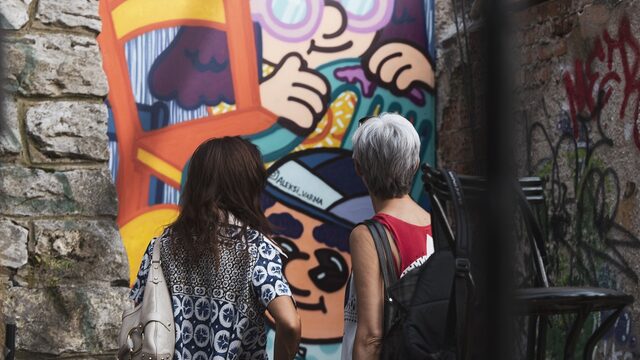
Among the partners that took part in the reinvigoration of the place alongside the Collective is the Citywise Foundation, which takes care of the artistic interventions on the walls of the 100 Chairs. For the street artist Alexi Ivanov, who together with Nikolay Petrov - GLOW and "Tochka Spot" personalized chairs and paints in the space, the initiative combines his usual creative practice of bringing neglected objects to life with the opportunity to meet a new, larger audience. "Every city has hundreds of opportunities to create places for culture and art. These can range from neglected inter-block spaces, riverbeds to green roofs on old panel blocks in neighborhoods," Ivanov says, noting that such complex interventions require more inventiveness, initiative, a desire for change, finding like-minded people and rolling up one's sleeves to work than usual. For this kind of change to happen deeper in the neighborhoods, the city itself needs to be better organized, especially in terms of night transportation, which is currently lacking in Sofia. "This is a huge constraint for people who want to lead a normal social life. We definitely need to work towards accessibility for young people moving around the city."
The Collective's thoughts follow similar lines: "The long-term goal is to actually reach out to different neighborhoods in Sofia and get more people to start applying the method of urban space development that we have already tested and proven," says Kodzabasheva, who believes that, with the assistance of specialists - a designer, an architect, a landscape architect, a builder - any local community can get a place, such as the green spaces around the blocks, that meets their wants and needs.
"Most people in Sofia would like the city to offer such places and this is a way to create them little by little. When it is seen that this is possible in certain locations, we hope people will think - why not elsewhere?"
Who are The Collective and what are their other big projects?
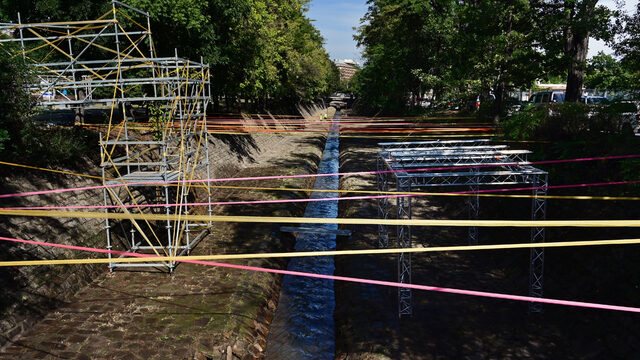
The Collective Foundation, which started in the middle of 2020 and brings together architects, experts, citizens active on the issues of urban environment and development, has several big projects under its belt, with the most famous one being the Rivers of the City. In 2020, The Collective organized an event on Perlovska River in Sofia (the canal from Eagle's Bridge down towards the Madrid Boulevard), and in September of 2021 they ran a second edition of the festival under Lion's Bridge over Vladaya river, further developing their ideas for architectural venues, urban entertainment, collaborations with cultural organizations and brands.
Parallel to the Lions Bridge project in Sofia, in recent months The Collective has also focused on reconnecting Ruse and the Danube - in early September of 2021 the festival set foot on the city's recently renovated riverside alley with a cultural program inspired by the ideas of local students, which evolved into a full-blown cultural and arts space that opened in May this year and will last for the whole of the summer.
The stairs between Moskovska and Budapest Streets just around the corner from the British embassy and the Arena di Serdica hotel have always held a special charm, away from the noise and bustle on the nearby boulevards. Starting this month, the long-abandoned courtyard of the Bulgarian Academy of Sciences (BAS) building on 1 Budapest Street has been transformed into the 100 Chairs space, an open-air stage for free concerts and parties, with a pop-up bar, art installations, designer furniture and street art.
The Collective Foundation, which has organized several editions of their Rivers of the City initiative, has a major role in transforming the courtyard and aims to establish it as a location that will have a more lasting impact on urban life.








